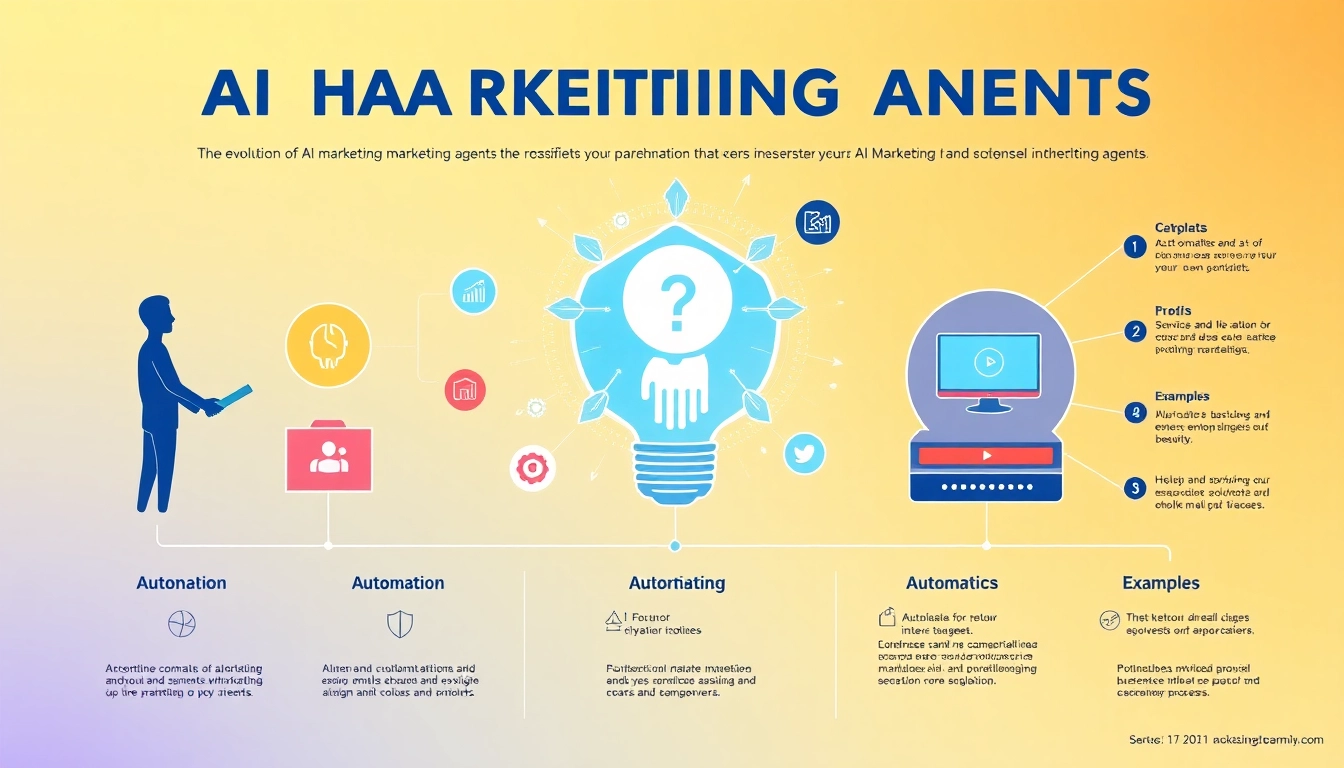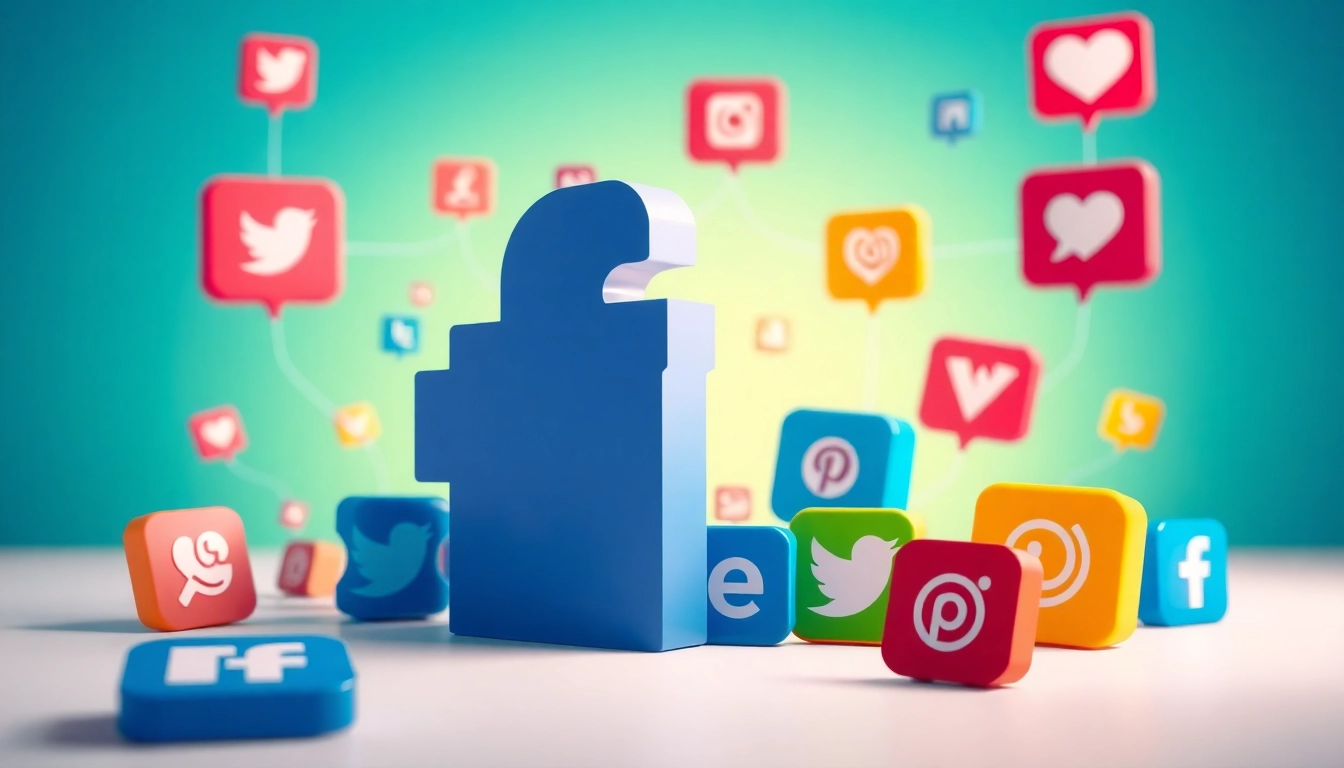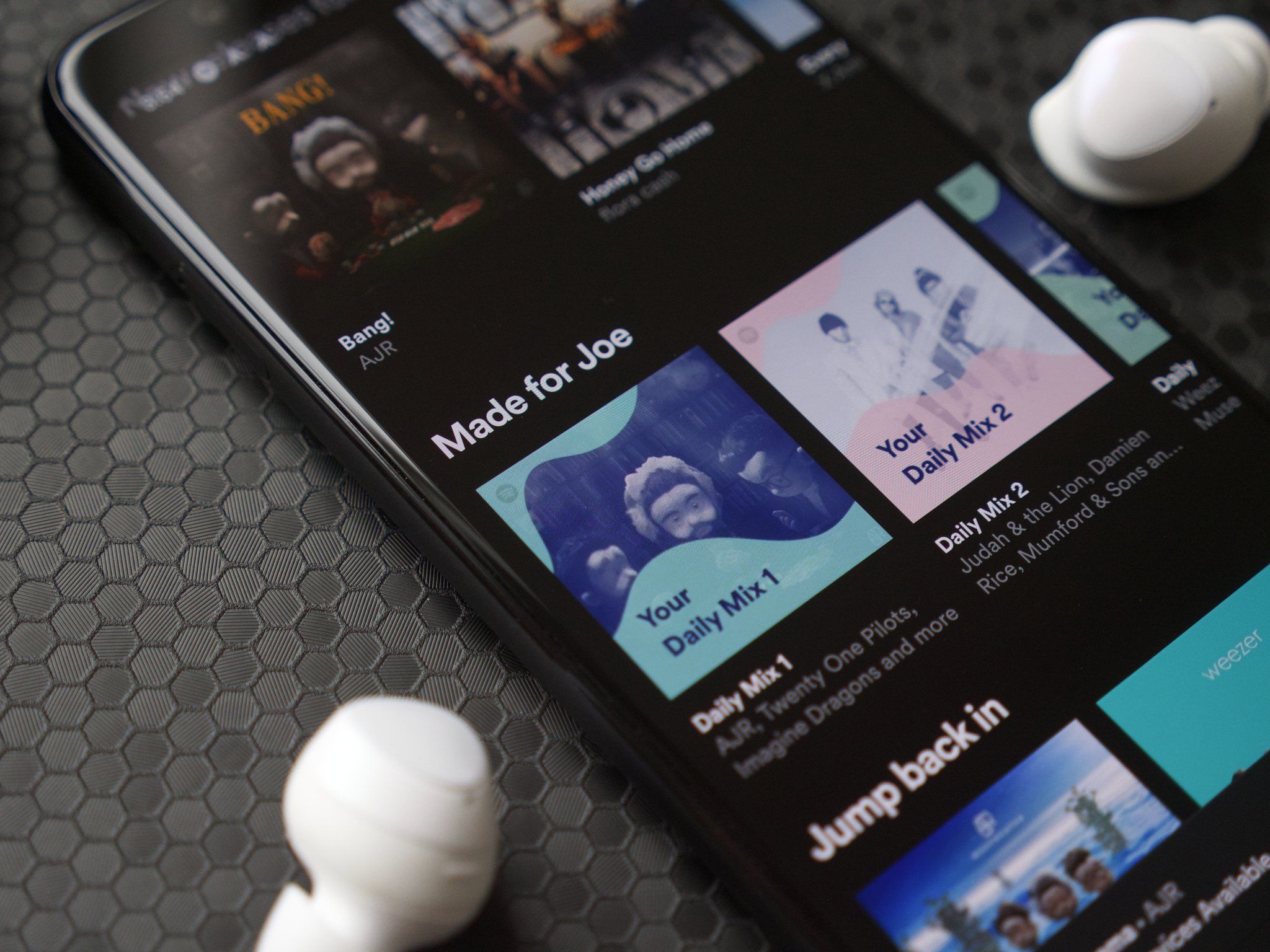
Understanding AI Marketing Agents
Definition and Overview of AI Marketing Agents
In today’s digital landscape, the integration of artificial intelligence (AI) into marketing has become increasingly important. AI marketing agents represent a sophisticated evolution of marketing tools designed to automate tasks, optimize strategies, and drive customer engagement. These agents are software tools that leverage AI technologies to automate specific marketing tasks, such as customer segmentation, content creation, and data analysis. While they operate with a degree of autonomy, human oversight is essential to ensure their effectiveness and alignment with broader marketing goals.
AI marketing agents can be likened to virtual assistants that utilize machine learning and predictive analytics to make data-driven decisions on behalf of marketers. As a result, they facilitate personalized interactions with customers, enhance operational efficiency, and ultimately improve marketing ROI. The conjunction of human creativity and AI’s data-crunching abilities is reshaping the marketing landscape, leading to more effective strategies and measurable outcomes.
The Role of Automation in Marketing
Automation plays a pivotal role in modern marketing, and AI marketing agents serve as the backbone of this transformation. Marketers are facing an avalanche of data coming from various sources such as email interactions, social media engagements, and customer feedback. Manually processing this data can lead to inefficiencies, errors, and missed opportunities. AI marketing agents streamline these processes by automating repetitive tasks, thereby freeing up valuable time for marketers to focus on strategic initiatives.
For instance, AI agents handle tasks like email marketing automation, where they can segment audiences based on behavior and send tailored messages at optimal times. This not only boosts engagement but also helps in nurturing leads further along the buyer’s journey. Additionally, AI can analyze larger datasets than a human can manage, identifying patterns and generating insights that inform marketing tactics and strategies.
Benefits of Using AI Marketing Agents
- Enhanced Efficiency: By automating routine tasks such as data entry, content creation, and customer responses, these agents drastically reduce the time spent on manual efforts.
- Improved Personalization: AI marketing agents can tailor content and messaging to individual customer preferences and behaviors, enhancing the customer experience.
- Data-Driven Insights: They have the ability to analyze vast amounts of data in real-time, providing insights that help refine marketing strategies and decision-making processes.
- Cost-Effective: Automating marketing tasks with AI reduces the need for large teams, resulting in significant cost savings for businesses.
- Scalability: AI marketing agents allow businesses to scale their marketing efforts without the proportional increase in workload or resources.
- Increased Accuracy: Reducing the human factor in data analysis minimizes errors and ensures that insights are based on comprehensive and accurate data.
Types of AI Marketing Agents
Task Automation Agents
Task automation agents are designed to handle specific marketing functions automatically, eliminating or reducing human intervention. These agents excel in areas like social media management, email marketing, and advertising. For example, platforms like Hootsuite and Mailchimp deploy AI algorithms to automate the scheduling and posting of content based on user engagement metrics.
By automating these tasks, businesses can maintain a consistent online presence without the constant need for manual updates. These systems often utilize rules and triggers to determine when to deploy specific actions, such as sending birthday emails to customers or posting content when audience engagement is predicted to be the highest. This not only boosts operational efficiency but also enhances the effectiveness of marketing efforts.
Data Analysis and Insights Agents
Data analysis is a critical aspect of marketing, especially in a world overflowing with data. AI-driven data analysis agents sift through complex datasets to extract actionable insights that inform marketing strategies. Tools like Google Analytics and IBM Watson leverage AI to provide marketers with deep insights into customer behavior, campaign performance, and market trends.
By utilizing machine learning algorithms, these agents can recognize patterns in purchasing behavior, forecasting future sales trends, and suggesting product recommendations. They help marketers understand what resonates with their audience, allowing for more targeted and effective marketing campaigns. For instance, a retail brand can use AI to analyze purchase data and predict which products will be popular in the coming season, allowing for proactive inventory management and targeted promotions.
Customer Interaction Agents
Customer interaction agents are designed to enhance the customer experience by facilitating direct communication and engagement. These include chatbots and virtual assistants that operate on websites, social media platforms, and customer service channels. For example, many brands employ AI chatbots to provide 24/7 customer support, answering frequently asked questions (FAQs) and assisting with purchasing decisions.
These agents can be programmed to learn from customer interactions, improving their responses over time and providing increasingly sophisticated support. As a result, businesses can enhance customer satisfaction while reducing the workload on human staff. Moreover, efficient interaction agents gather customer feedback and insights that can be invaluable in tightening marketing strategies and improving products or services.
Implementing AI Marketing Agents Effectively
Choosing the Right Tools for Your Business
Selecting the appropriate AI marketing tools is crucial for achieving optimal results. Different tools serve diverse purposes, so marketers must assess their needs before making choices. Factors to consider include the specific marketing goals, budget constraints, existing infrastructure, and the level of technical expertise within the organization.
For instance, if a business aims to enhance social media engagement, it may benefit from a platform like Sprout Social, which offers AI-driven analytics and content scheduling capabilities. On the other hand, for businesses seeking to refine their email marketing, platforms like HubSpot or Mailchimp can leverage AI for segmentation and design. Conducting thorough research and possibly integrating multiple tools can prove advantageous in crafting a comprehensive AI strategy that aligns with marketing objectives.
Integrating AI Agents into Your Marketing Strategy
Once the right tools are chosen, the next step is successful integration into the marketing strategy. This involves not only deploying the tools but also training team members on how to effectively utilize them. Developing a structured plan to incorporate AI agents can significantly enhance their effectiveness. Start by identifying specific marketing processes that can be improved with AI automation, such as lead nurturing or data analysis.
As AI agents begin functioning alongside human teams, continuous monitoring is vital. Marketers should assess the effectiveness of their AI tools regularly, ensuring they align with desired outcomes and make adjustments as needed. This iterative approach allows marketers to harness insights from data while also refining their strategies for better performance.
Monitoring and Measuring Success
The use of AI marketing agents requires a robust framework for monitoring and measuring success. Key Performance Indicators (KPIs) should be established to evaluate the return on investment (ROI) and overall effectiveness of AI initiatives. This can include metrics such as conversion rates, customer engagement levels, and cost savings due to improved operational efficiencies.
Tools like Google Analytics and custom dashboards can help marketers visualize this data, making it easier to identify trends, strengths, and weaknesses within their AI-driven strategies. By setting regular review intervals, teams can adapt their approaches based on real-time feedback, maximizing the contributions of AI marketing agents to their growth and success.
Case Studies: Success Stories of AI Marketing Agents
How Companies Leverage AI Agents
Various companies have successfully embraced AI marketing agents and reaped the benefits. For instance, Coca-Cola has utilized AI algorithms to analyze customer preferences and optimize ad campaigns. By leveraging AI’s capabilities, they can craft personalized marketing messages, improving customer engagement and sales conversions.
Similarly, Sephora employs an AI-driven chatbot on its website that assists customers in finding products suited to their preferences. This interaction not only enhances the customer experience but also drives sales by guiding potential buyers through the purchasing funnel. Such successful implementations showcase the transformative potential of AI marketing agents in enhancing customer engagement and driving sales.
Impact on Customer Engagement
The integration of AI marketing agents has demonstrably improved customer engagement across various sectors. Customer interaction agents, such as chatbots, have revolutionized how companies communicate with their audience. The increased convenience of immediate assistance through AI not only enhances customer satisfaction but also fosters brand loyalty.
For example, brands like H&M utilize AI-enabled virtual assistants to engage customers through personalized recommendations based on browsing history. This tailored approach resonates with users, encouraging them to explore products that align with their preferences, ultimately leading to higher conversion rates and increased revenue.
Quantifying Results: KPIs and Metrics
To illustrate the impact of AI marketing agents, businesses must focus on quantifiable results. KPIs such as customer acquisition costs (CAC), customer lifetime value (CLV), and overall engagement rates are critical metrics. For instance, a company implementing AI-driven email marketing saw a 20% decrease in CAC while increasing CLV by 15% within six months.
Conducting split tests can also offer insights into how AI marketing strategies perform compared to traditional methods. Successful case studies consistently highlight the importance of leveraging AI to both streamline operations and derive more profound insights into customer behavior, leading to better-targeted marketing efforts and measurable success.
Future Trends in AI Marketing Agents
Advancements in AI Technology
The field of AI is rapidly evolving, and marketers can expect continuous advancements that will shape the future of AI marketing agents. Machine learning, deep learning, and natural language processing (NLP) technologies are becoming more sophisticated, enabling AI agents to understand and adapt to customer interactions in real time with greater precision.
Innovations in predictive analytics will further enhance capabilities, allowing businesses to anticipate customer needs and behaviors even before they manifest. For instance, as voice search continues to gain traction, AI agents equipped with NLP will be better suited to engage customers across various platforms, from chat interfaces to voice-activated devices.
Ethical Considerations in AI Marketing
As businesses increasingly rely on AI marketing agents, ethical considerations must take center stage. Privacy concerns regarding data collection and the ethical use of AI technologies are paramount. Marketers must navigate issues surrounding data ownership and customer consent while ensuring compliance with regulations such as GDPR.
Transparent communication about AI usage in marketing can foster trust with customers and reinforce brand integrity. Organizations must prioritize ethical AI practices to maintain credibility and build lasting customer relationships.
The Growing Importance of Human-AI Collaboration
The most effective marketing strategies will emerge from the collaboration between human creativity and AI’s analytical capabilities. While AI marketing agents provide valuable insights and automation, human marketers are essential for crafting compelling narratives, understanding emotional triggers, and navigating unique customer interactions.
Embracing a collaborative mindset will ensure that marketers can leverage the full spectrum of AI while maintaining the human touch that is critical for successful relationships with customers. Future marketing strategies will hinge on a seamless integration of human expertise and AI technology, resulting in campaigns that resonate deeply with targeted audiences.







